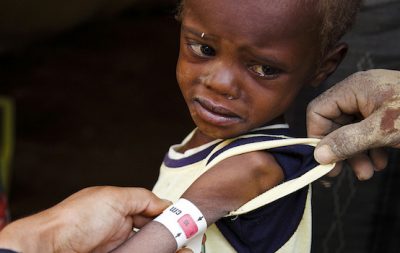Yemen: The Largest Humanitarian Crisis that No One Discusses

All Global Research articles can be read in 51 languages by activating the “Translate Website” drop down menu on the top banner of our home page (Desktop version).
To receive Global Research’s Daily Newsletter (selected articles), click here.
Visit and follow us on Instagram at @globalresearch_crg and Twitter at @crglobalization. Feel free to repost and share widely Global Research articles.
***
Yemen has been at war for the past seven years. A once great land of ancient trade, Yemen has become one of the poorest nations in the Arab world. Their GDP for 2021 was expected to reach only 26.9 billion USD. The World Bank estimated that over half of Yemen’s population lived in poverty prior to the pandemic, and that figure has now reached 71% to 78%.
The United Nations recently declared that 19 million people will go hungry in the coming months. Yemen is completely reliant on exports for basic necessities and 90% of its food supply is imported. One-third of imported wheat comes from Ukraine and Russia. The World Food Programme (WFP) said five million people are at “immediate risk” of slipping into famine-like conditions, and that their program needs $887.9 million to feed 13 million people over the next six months. Over 20.5 million people are without safe water as well.
Around 75% of the $14 billion donated to the nation came from the United States, Saudi Arabia, the United Kingdom, the United Arab Emirates, Germany, and the European Commission. The World Bank expects inflation to reach 45% in Yemen this year but the rial is already worthless and the nation has yet to adopt a safe reserve currency.
I have yet to see a Yemeni flag or virtue signaling for the people living in this particular war-torn country as it is not part of the agenda. The media rarely reports on Yemen and most journalists likely would not be able to recognize Yemen’s flag. People are not driving around with “We Stand With Yemen” bumper stickers, and schools are not requiring children to make sense of this war. The public does not discuss or shed tears for the people of Yemen who live in unfathomable conditions because they are not a piece of the larger agenda and no one can profit off of their suffering at this time.
*
Note to readers: Please click the share buttons above or below. Follow us on Instagram, @globalresearch_crg and Twitter at @crglobalization. Feel free to repost and share widely Global Research articles.
Featured image is from Hugh Macleod/IRIN/Creative Commons

